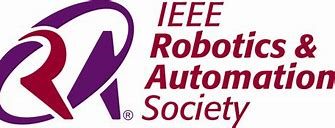ABOUT
IEEE Robotics Automation Society Student Branch of Sri Sai Ram Engineering College was formed on 19th March 2021. The inauguration was done by Prof Dr. B. Vinod, Head of Robotics and Automation Department, Chair of IEEE RAS, PSG college of Technology, Coimbatore.

RAS SBC Vision
RAS SBC Mission
- To encourage and explore the creativity in young mind to be the leaders in Robotics through innovative engineering skills.
- To unite students in an educational environment to create utility based robotic applications.
- To train students for self-designing by working on large- and small-scale project

RAS SBC Goals
RAS SBC Objectives
- To nurture and cultivate students interest in robotics with proper Hands on session. [4 Sessions/Year]
- To Mentor students to experience challenges and rewards in building and analyzing robotic mechanisms.[Sessions as per Requirements. Minimum 2 Sessions/Year]
- To Facilitate students with an authentic design-build-test experience that simulates real-world engineering.[2 Internships/Year]
- Hosting inter and intra college robotics competitions as well as preparing teams to compete at various robotic competitions[Intra College Competitions 2 /Year, Inter College Competitions 2/Year (National or International as per availability)]
IEEE
IEEE is the world’s largest professional association dedicated to advancing technological innovation and excellence for the benefit of humanity. IEEE and its members inspire a global community through IEEE’s highly cited publications, conferences, technology standards, and professional and educational activities. IEEE is the trusted “voice” for engineering, computing and technology information around the globe.
There are more than 430,000 IEEE members in more than 160 countries.
The IEEE publishes a third of the world’s technical literature in electrical engineering, computer science and electronics and is a leading developer of international standards that underpin many of today’s telecommunications, information technology and power generation products and services. IEEE’s roots go back to 1884 when electricity began to become a major influence in society. There was one major established electrical industry, the telegraph, which since the 1840s had come to connect the world with a data communications system faster than the speed of transportation. The telephone and electric power and light industries had just gotten underway.IEEE, pronounced “Eye-triple-E,” stands for the Institute of Electrical and Electronics Engineers. The association is chartered under this name and it is the full legal name. To learn more about the association’s name, please read the History of IEEE.
ROBOTICS AND AUTOMATION SOCIETY
The IEEE Robotics and Automation Society’s objectives are scientific, literary and educational in character. The Society strives for the advancement of the theory and practice of robotics and automation engineering and science and of the allied arts and sciences, and for the maintenance of high professional standards among its members, all in consonance with the Constitution and Bylaws of the IEEE and with special attention to such aims within the Field of Interest of the Society.
RAS strives to advance innovation, education, and fundamental and applied research in robotics and automation. Robotics focuses on systems incorporating sensors and actuators that operate autonomously or semi-autonomously in cooperation with humans. Robotics research emphasizes intelligence and adaptability to cope with unstructured environments. Automation research emphasizes efficiency, productivity, quality, and reliability, focusing on systems that operate autonomously, often in structured environments over extended periods, and on the explicit structuring of such environments.
The Society provides aid in promoting close cooperation and exchange of technical information among its Members and Affiliates, and to this end holds meetings for the presentation of papers and their discussion, sponsors appropriate periodicals and special technical publications, and through its committees studies and provides for the needs of its members and affiliates.

